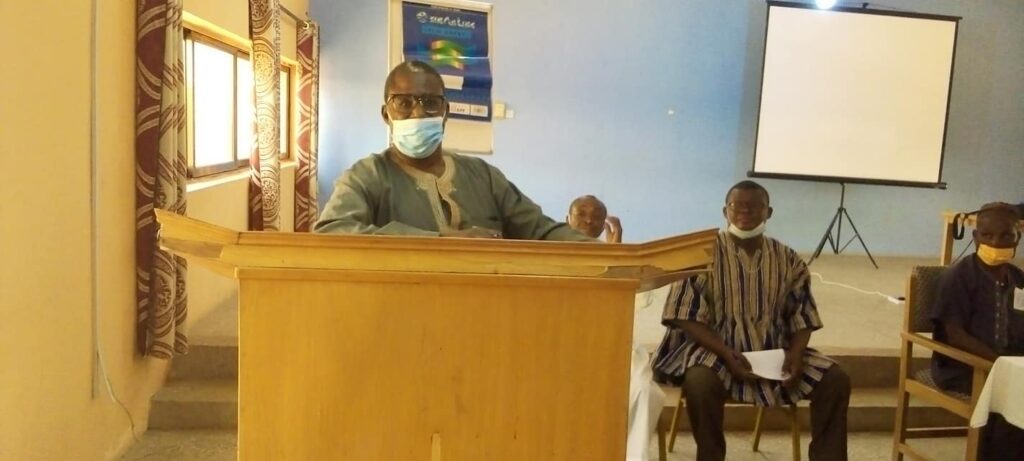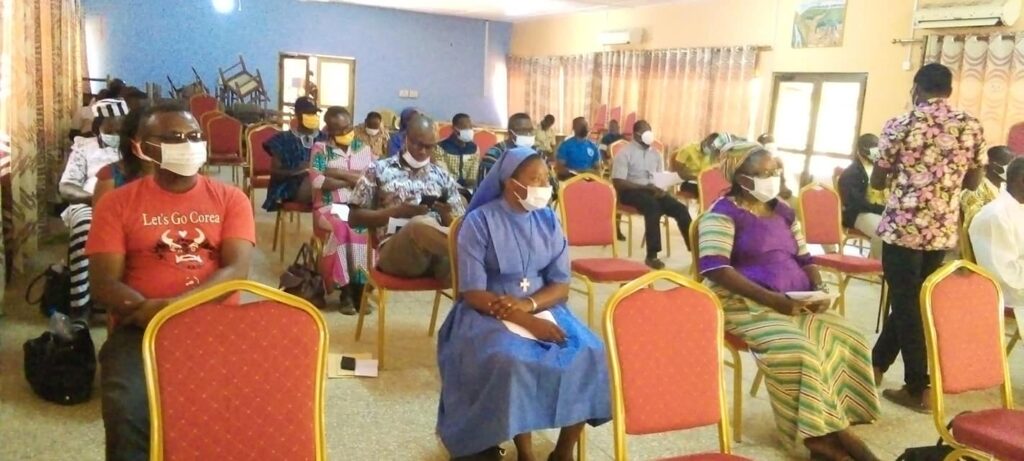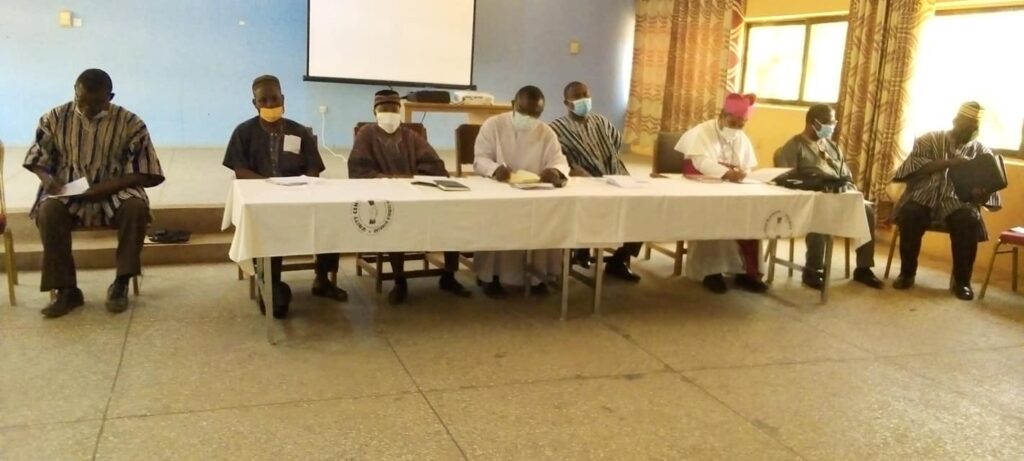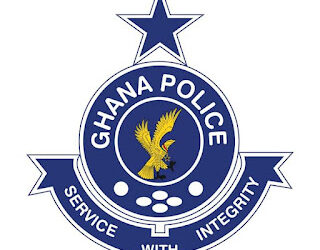Various stakeholders and heads of institutions in the Savannah region have pledged their unflinching support to help the Damongo Catholic Church Diocese’s strategic plan achieve it’s major purpose.
The Damongo Diocese strategic plan was launched by the Most Rev Bishop Peter Paul Y. Angkyier on 16th January, 2021 at the Unity Center, Damongo.
Welcoming participants to the launch of the 4th Diocesan Strategic Plan of the Damongo Diocese, the Diocesan Development Coordinator, Rev. Fr. Lazarus Annyereh said strategic plans enable organizations and institutions to set out sustainable conceptual frame work for the Promotion of objectives and strategies that respond to their mission and long term visions.

Fr. Lazarus explained that as Diocese we are called to the mission of evangelization and integral human development. This noble tasks cannot be carried out without strategic planning. “If the Diocese today can state that for the past 25 years it has made a mark in the expansion of pastoral structure or infrastructure, as well as playing key roles in education, health care, water and sanitation, environmental protection, works of charity for the poor and homeless, livelihoods and food security, advocacy and networking. It’s all because of the efforts made in the implementation of strategic plans”, he said.
Notwithstanding the past success stories, there is always room for improvement. Hence, the reason the past plans were evaluated and new strategic plan drafted through information gathered, added the Rev Fr.
Fr. Lazarus commended the facilitators for their efforts for the work done. He disclosed that the team used about 37 working days to get the final strategic plan drafted and pledged that the plan will be put into good use for the benefit of the larger society groups.
The overview of the strategic plan was conducted by Professor Francis Z. L. Bacho of the Faculty of Planning at The Simon Diedong University of Business and Integrated Development Studies.
He explained that the initial evaluation of 2015 to 2020 strategic plan elapsed in the year 2020 and therefore, a call in the right direction to go in for another plan.
He said the Diocese visited all it’s working relationship with other critical stakeholders such as government, traditional leaders, herdsmen, farmers, ethnic groups, schools and other institutions before finally preparing the report.
The report contains themes such as the Diocese Internal Governance system ( goals and strategies for next 5 years, improving religious activities etc), the Promotion of Human Development ( Agriculture, Health, Education and access to credit), Environment ( socio-economic, cultural, destruction of environment, farming etc) and Peaceful coexistence among others.
He charged all stakeholders to contribute greatly towards improving education most especially, for the female child. Health, livelihoods, farming and other viable sectors that affect the larger groups in society must be given the needed attention to help the church successfully achieve the it’s goals, saying “for the plan to succeed we need to bring on board all experts to promote the collaborative partnership”.
The environmental destruction and emerging conflicts with regards to livelihoods is growing daily. Today we now have charcoal markets all over the area. The rate at which the destruction is taking place is recipe for conflict if not controlled now. In the next 10 to 15 years, it will be worse if the RCC and all stakeholders do not stamp their authorities jointly to control the menace, this will help promote the peaceful coexistence, opined.
Since 1995, Professor Francis has been working closely with the Damongo Catholic Diocese on different strategic planning stages. He commended the stakeholders for their selfless efforts in contributing towards the drafting of the strategic plan 2021 to 2026.
The Savannah regional Health Director Dr. Chrysantus Kubio, called on stakeholders to take keen interest in the strategic plan most especially towards improving health care delivery to the people since the health directorate does not exist in an island.
Dr Chrysantus explained that disease prevention is very important in our every day life but most people give little appreciation to this public health variant.
Stakeholders such as the Diocese has mapped out plans to help prevent and cure diseases and, it is very good idea to involve all sectors. One doesn’t determine where they should be admitted whenever they fall sick, depending on the situation and location. For example, when one is traveling from Damongo to Wa and is involve in an accident around Tuna, that person doesn’t determine where he should be sent to, for medical treatment. So all must get involve to help improve the health sector because the health service can not do it alone.
Mr Derry Richard, the Savannah regional Education Planning Officer represented the regional director.
Mr Derry said that as a regional directorate, the GES is still putting themselves together with some little offices. The GES appreciates the invitation to be part of the launching of the strategic plan of the Diocese because the GES is a development partner to the Diocese on Education.
He commended the Damongo Diocese for their role during the first round of the Covid-19 pandemic and urged them to continue with the good work.
Mr Derry said the GES appreciate the full corporation by the Diocese during the Covid-19 pandemic where schools were destrupted. Around that time, the Diocese put up strict protocols to help mitigate the spread of the virus.
He also stated that the GES is undergoing some curriculum changes and structures and wish to notify the Diocese to apply it’s grounds to accommodate the changes going on help deliver quality and decisive education to the society.





















